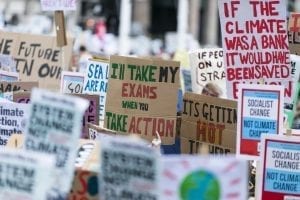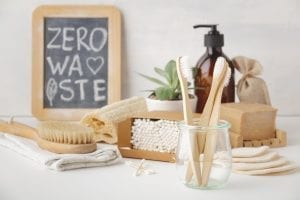The IFOP Beauty division sheds light on the new “sustainable natives” generation and four initiatives deployed by brands to bring about ecological transformation in the beauty sector.
Who are “Sustainable Natives”?
This is the generation aged under 20 and about to begin further education. They are aware that the development of human society cannot take place to the detriment of the planet. They feel they have their part to play from a social, economic but above all environmental standpoint. Sustainable development is a key and indispensable factor when it comes to choosing their studies, career, investments and consumption on both the short and long term. They are the “consum’actors” of the future. It is thus crucial to get to know and understand them better to be able to suggest a take on beauty that corresponds to them and represents no danger for their future.

They expect commitment but above all action
“Sustainable Natives” expect a high level of commitment from the cosmetics industry. They want to consume better and purchase more environmentally friendly products that have a minimal impact on the planet. They demand commitment, on paper of course, but above all tangible actions! Cosmetic brands have understood this and must thus reconsider their markets from a 360-degree perspective.
Let us take a look at the four levers to be activated to offer beauty with a higher level of commitment:
Address social concerns
Brands are embarking on a restructuration of their supply chains and are rethinking the production process to support local economies. They are placing the emphasis on short supply chains, craftsmanship, ethical sourcing principles and fairer remuneration…
Who is doing what? Aroma-Zone is consolidating its development and is striving to repatriate production as much as possible. Typology shares part of its Black Friday profits with an organisation that plants trees in deforested areas worldwide and in so doing creates jobs in poor communities.
Address animal rights
As a result of several media scandals (e.g. videos showing ill-treatment of animals), campaigns concerning measures taken to protect animals as well as the increasing popularity of veganism (especially among the younger generations), brands are under close scrutiny. The latter are reconsidering their product formulas and/or taking the necessary measures to fulfil the requirements of specific labels (no animal testing throughout the entire production process, no ingredients of animal origin in the formulas).
Who is doing what? An increasing number of products are displaying labels which provide consumers with guarantees regarding production processes such as cruelty free and vegan or vegan society. An example which is worthy of note is The Body Shop which was the first brand to take action against animal testing in the cosmetics sector, not to mention Kiehl’s, Lavera, Lush, Naturé moi…

Address health issues
“Sustainable natives” is a generation of young people who place emphasis on their own health and that of the planet. They keep a keen lookout for labelling and request explanations. They are assisted in this by certain applications which fully grasped the amplitude of this trend at an early stage such as Yuka which already totals 12 million downloads over 2 years.
Who is doing what? Armed with a means of exerting pressure on brands, the younger generation is striving to bring about changes. Under this watchful eye, transparency is of the essence for large groups. L’Oréal for example has set up its “Au cœur de nos produits” platform to shed light on its manufacturing processes and the composition of the group’s products. New beauty brands are also establishing their credentials such as Typology with its no-nasties formulas; Respire with its 99,98% natural origin deodorant brand; La Bouche Rouge Paris with its “pure” microplastics-free lipsticks; or Garancia with its Huile Ensorcelante aux Super Pouvoirs® which refers to its good Yuka score in in its communication strategy.
Address environmental concerns
No to plastic! This revolutionary invention dating back to the 1800s has now become highly controversial: air and sea pollution, negative impact on animal and human health… Nothing very appealing here for the new generation. So brands are saying Yes to glass, aluminium and kraft and thus adopting new forms of packaging.
Who is doing what? Many new initiatives are to be found on the market today: more concentrated formulas, compressed products, solid products, products consumers can make at home, DIY workshops.
Aroma-zone organises DIY workshops; Pick&Gram is selling bulk products; Yves Rocher manufactures I Love My Planet concentrated shampoos; and L’Oréal is working with Albéa on tubes made from carton.

Let’s remain positive!
The beauty industry must reduce its impact on the planet while addressing the needs of “Sustainable natives”. Green washing is no longer accepted, and beauty brands have understood this.
The aim of the IFOP Beauty division is to provide support to brands carrying out their ecological transformation and help them gain better understanding of their targets while identifying the levers to be activated. Should you have any questions, do not hesitate to contact us.
Julie Costa – Beauty division group manager
KEVIN ZHOU : Send an email











